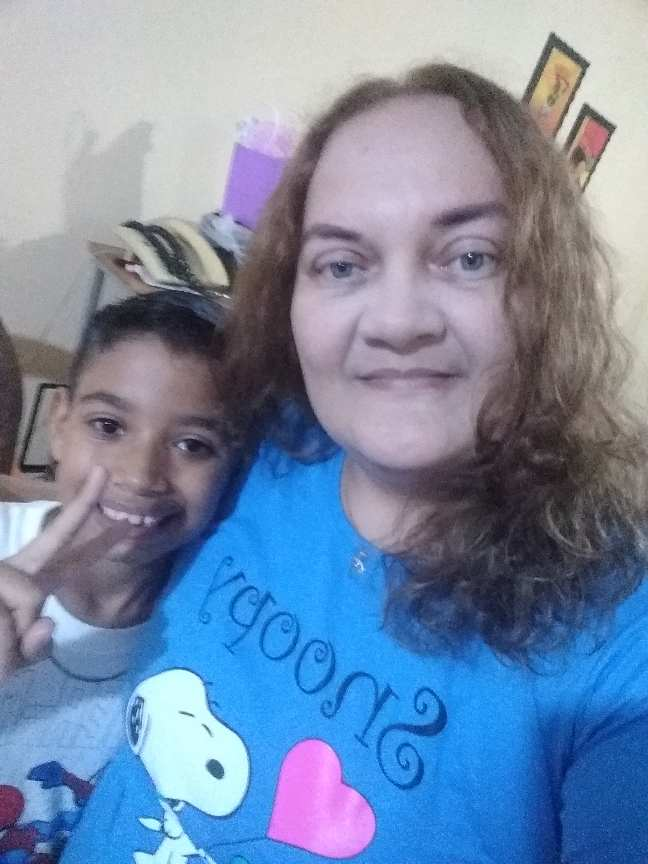

Saludos y feliz viernes, queridas mamis. Me siento complacida de este nuevo encuentro para abordar un tema que ha estado rondando mi mente hace días. He estado recordando mucho mi niñez, así como la niñez de mis hijos, y también observando las acciones de madres cercanas a mí. La vida, en realidad, no es que sea compleja; pienso que quienes la hacemos compleja y difícil somos nosotros mismos. Lo mismo sucede con la maternidad.
Greetings and happy Friday, dear mommies. I am pleased with this new meeting to address a topic that has been on my mind for days. I have been reminiscing a lot about my childhood, as well as the childhood of my children, and also observing the actions of mothers close to me. Life, really, it's not that it's complex; I think the ones who make it complex and difficult are ourselves. The same is true of motherhood.
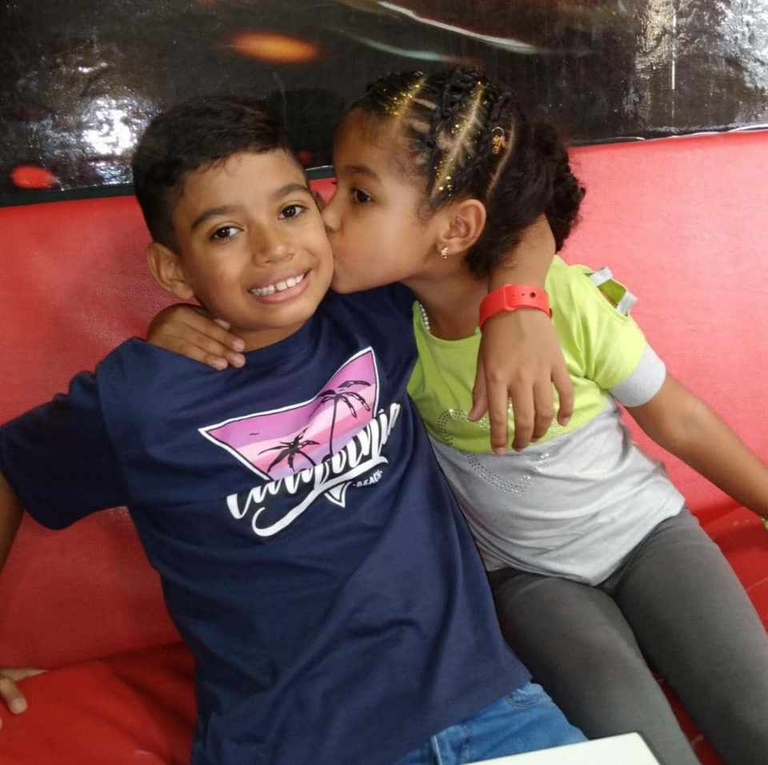
Como madres, a menudo creamos un caos y pensamos que siempre tenemos la razón. Nos cuesta permitir que nuestros hijos opinen y participen en la toma de decisiones. Sin embargo, es importante recordar que la maternidad no debe ser una fuente de conflictos constantes. Nuestros hijos también tienen voz y sus opiniones pueden aportar una perspectiva valiosa.
As mothers, we often create chaos and think we are always right. We have a hard time allowing our children to have a say and participate in decision making. However, it is important to remember that motherhood should not be a source of constant conflict. Our children also have a voice and their opinions can provide a valuable perspective.
Reflexionando sobre mi infancia, recuerdo momentos en los que deseaba que mis padres me escucharan y consideraran mis sentimientos. Ahora, como madre, intento aprender de esas experiencias y permito que mis hijos expresen sus ideas y emociones. Esto no solo fortalece nuestra relación, sino que también les enseña a ser personas seguras y respetuosas, pero al mismo tiempo me ayuda a sanar esas heridas de mi niñez donde las limitaciones eran muchas.
Reflecting on my childhood, I remember times when I wished my parents would listen to me and consider my feelings. Now, as a mother, I try to learn from those experiences and allow my children to express their ideas and emotions. This not only strengthens our relationship, but also teaches them to be confident and respectful people, but at the same time helps me to heal those wounds from my childhood where the limitations were many.

Es esencial que como madres busquemos un equilibrio, donde podamos guiar a nuestros hijos con amor y firmeza, pero también escucharlos y respetarlos. Al hacerlo, no solo reducimos el caos y la complejidad de la vida diaria, sino que también creamos un ambiente más armonioso y enriquecedor para todos.
It is essential that as mothers we seek a balance, where we can guide our children with love and firmness, but also listen to them and respect them. In doing so, we not only reduce the chaos and complexity of daily life, but also create a more harmonious and enriching environment for everyone.
Tengo recuerdos intactos de mi niñez, pero lo que no puedo recordar es el tono de mi voz, cosa que me da risa aunque parezca tonto. Cualquiera podría haber dicho que era muda y hasta yo misma lo pienso, dado que mi madre no permitía que ninguno de sus hijos hablara de algo, emitiera una opinión o respondiera a sus regaños; en la época nadie se defendía, era lo que ella decía y nada más. Este es un patrón que, lamentablemente, muchas madres continúan siguiendo en la actualidad, creyendo que es la manera correcta de educar, criar y enseñar.
I have intact memories of my childhood, but what I can't remember is the tone of my voice, which makes me laugh even though it seems silly. Anyone could have said I was mute and even I think so myself, given that my mother would not allow any of her children to talk about anything, voice an opinion or respond to her scolding; at the time no one stood up for themselves, it was what she said and nothing more. This is a pattern that, unfortunately, many mothers continue to follow today, believing it to be the right way to educate, raise and teach.
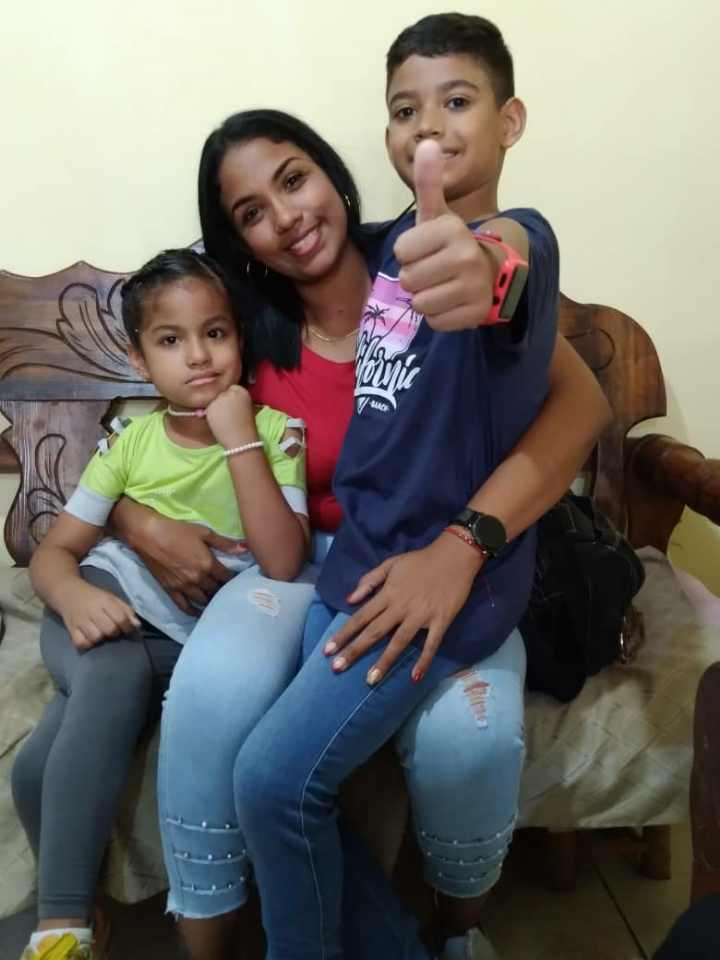
Muchas madres no permiten que sus hijos respondan a nada porque sienten que su autoridad es atacada por un niño malcriado o mal educado. Este es un comportamiento que nos han hecho creer nuestras madres y abuelas. Sin embargo, es importante reflexionar sobre el impacto que esta forma de educación tiene en la autoestima y el desarrollo de los niños. Al silenciar sus voces, les estamos privando de la oportunidad de expresarse, aprender a comunicar sus pensamientos y desarrollar su capacidad de argumentación.
Many mothers do not allow their children to respond to anything because they feel that their authority is under attack by a spoiled or ill-mannered child. This is a behavior we have been led to believe by our mothers and grandmothers. However, it is important to reflect on the impact this form of education has on children's self-esteem and development. By silencing their voices, we are depriving them of the opportunity to express themselves, learn to communicate their thoughts and develop their capacity for argumentation.
Es esencial reconocer que los niños también tienen derecho a expresar sus opiniones y sentimientos siempre y cuando lo hagan de manera respetuosa. Permitirles participar en conversaciones y decisiones no solo fortalece su confianza y autoestima, sino que también les enseña habilidades sociales y emocionales importantes. Además, escuchar y considerar sus opiniones fomenta un ambiente de respeto mutuo y comunicación abierta en el hogar. Al hacerlo, estamos preparando a nuestros hijos para que sean individuos seguros y capaces de enfrentar los desafíos de la vida con confianza y empatía.
It is essential to recognize that children also have the right to express their opinions and feelings as long as they do so in a respectful manner. Allowing them to participate in conversations and decisions not only builds their confidence and self-esteem, but also teaches them important social and emotional skills. In addition, listening to and considering their opinions fosters an environment of mutual respect and open communication in the home. In doing so, we are preparing our children to be confident individuals capable of facing life's challenges with confidence and empathy.
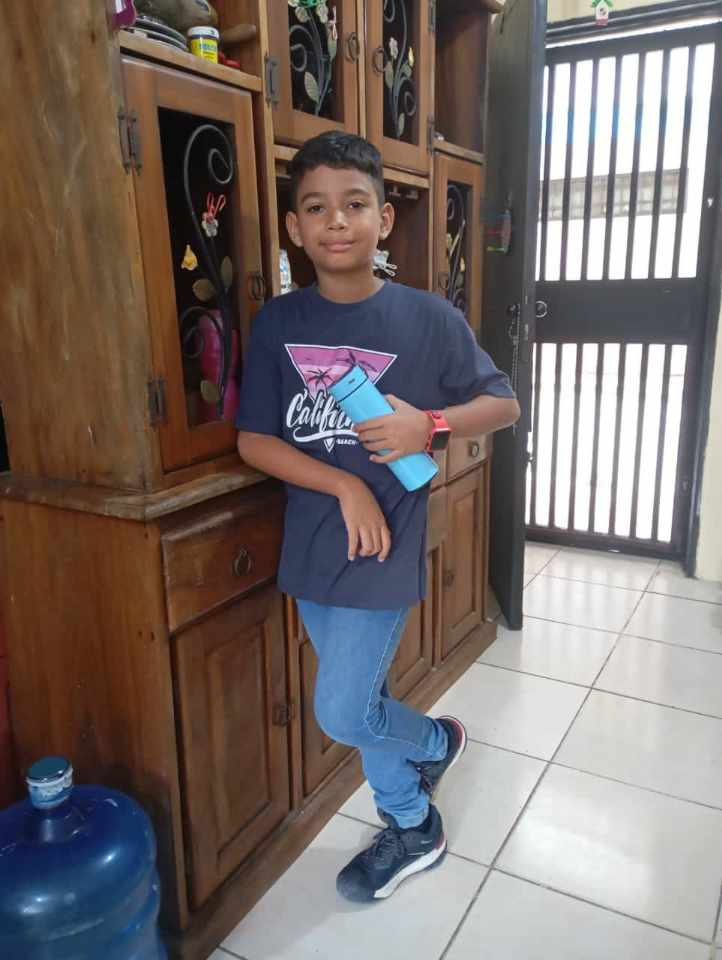
Es fundamental romper con estos patrones de educación autoritaria y adoptar un enfoque más comprensivo y abierto. Al permitir que nuestros hijos hablen y expresen sus opiniones, no solo les estamos dando una voz, sino que también estamos construyendo relaciones más fuertes y saludables con ellos. Recordemos que la maternidad no se trata de tener siempre la razón, sino de guiar y apoyar a nuestros hijos en su crecimiento y desarrollo.
It is critical to break away from these authoritarian upbringing patterns and adopt a more supportive and open approach. By allowing our children to speak up and express their opinions, we are not only giving them a voice, but we are also building stronger and healthier relationships with them. Let's remember that motherhood is not about always being right, but about guiding and supporting our children in their growth and development.
Desde mi perspectiva, el problema no radica en que nuestros hijos nos respondan, sino en la forma en que lo hacen. Aquí es donde debemos enfocar nuestro esfuerzo en la enseñanza. La única manera de tener una conversación auténtica es si cada una de las partes puede responder y dar su opinión. Al permitir y fomentar esta dinámica, estamos enseñando a los niños a defenderse de manera respetuosa, a tener criterio propio, a pensar críticamente y a expresar lo que sienten.
From my perspective, the problem is not whether our children respond to us, but how they respond to us. This is where we need to focus our teaching efforts. The only way to have an authentic conversation is if each party can respond and give their opinion. By allowing and encouraging this dynamic, we are teaching children to stand up for themselves in a respectful way, to have their own judgment, to think critically, and to express what they feel.
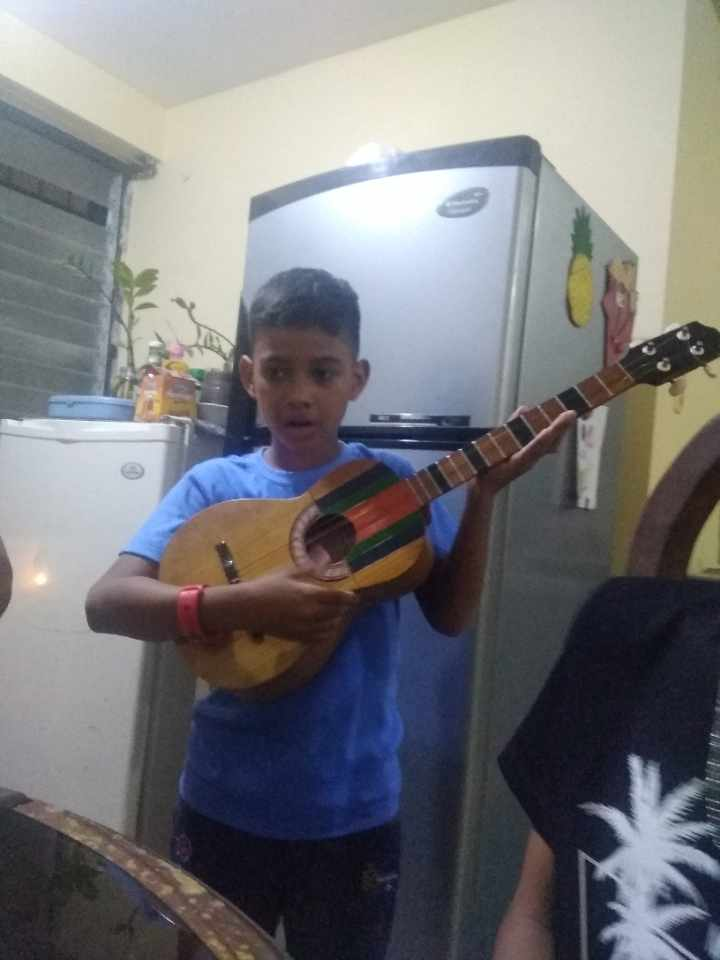
Si, por el contrario, evitamos que los niños respondan a nuestras preguntas, es probable que de adultos los juzguemos por la manera grosera en la que responden, o incluso por no responder en absoluto. También podríamos sentirnos heridos porque no nos toman en cuenta al tomar sus propias decisiones. Sin embargo, rara vez nos detenemos a pensar que somos nosotras mismas quienes hemos provocado esta situación al no permitirles una participación comunicativa y respetuosa durante su crecimiento.
If, on the other hand, we prevent children from answering our questions, we are likely to judge them as adults for the rude way they answer, or even for not answering at all. We might also feel hurt that they don't take us into account when making their own decisions. However, we rarely stop to think that it is we ourselves who have caused this situation by not allowing them to participate in a communicative and respectful way as they grow up.
Permitir que nuestros hijos respondan no significa que estemos perdiendo nuestra autoridad. Más bien, se trata de enseñarles cómo responder de manera adecuada y respetuosa. Esta práctica no solo fortalece su capacidad para comunicarse eficazmente, sino que también les enseña a valorar la opinión ajena y a tener discusiones constructivas.
Allowing our children to respond does not mean that we are losing our authority. Rather, it is about teaching them how to respond appropriately and respectfully. This practice not only strengthens their ability to communicate effectively, but also teaches them to value the opinions of others and to have constructive discussions.
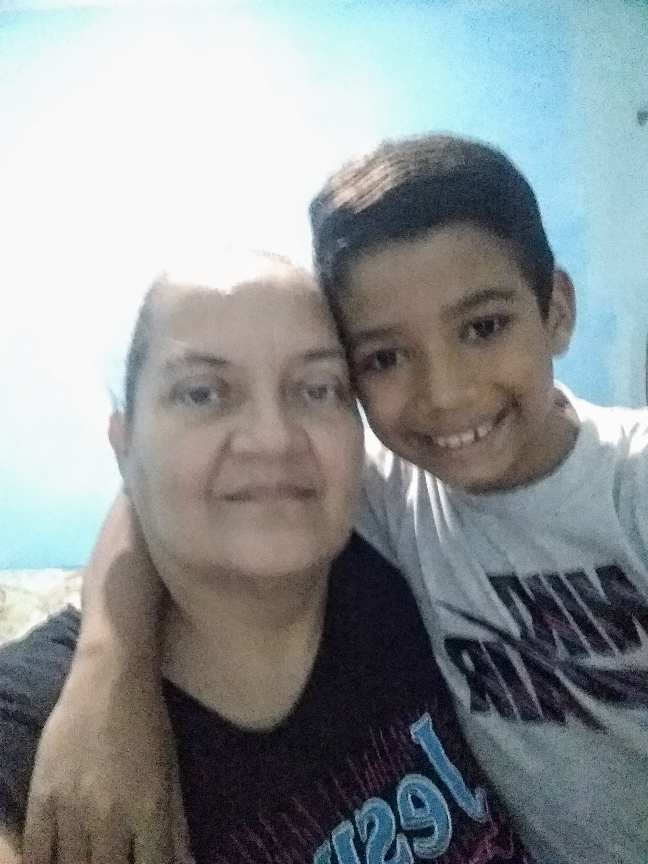
Es crucial reconocer que fomentar un entorno donde los niños se sientan seguros para expresarse puede tener efectos positivos a largo plazo. Estaremos criando individuos seguros, con capacidad de defensa y pensamiento crítico. Al permitirles participar en conversaciones y decisiones, les estamos mostrando que sus opiniones son valiosas y dignas de ser escuchadas.
It is crucial to recognize that fostering an environment where children feel safe to express themselves can have positive long-term effects. We will be raising confident individuals with advocacy and critical thinking skills. By allowing them to participate in conversations and decisions, we are showing them that their opinions are valuable and worthy of being heard.

Te comprendo como madre, en varios aspectos me identifico.
Si en nosotros estuviera el poder para que no les afectará a nuestros hijos tantas cosas de la vida.te abrazo @giocondina🤗
El respeto y la comunicación es fundamental en nuestra relación con nuestros hijos, aveces es difícil encontrar ese equilibrio pero si se puede lograr, estoy de acuerdo contigo, el tono de la voz o en la manera como respondan o nosotros le hablemos hace una gran diferencia. Me pareció muy bonita la reflexión que nos compartes hoy.
muy importante tener ello para poder llevar una relacion plena y agradable con nuestros hijos, buena reflexion!